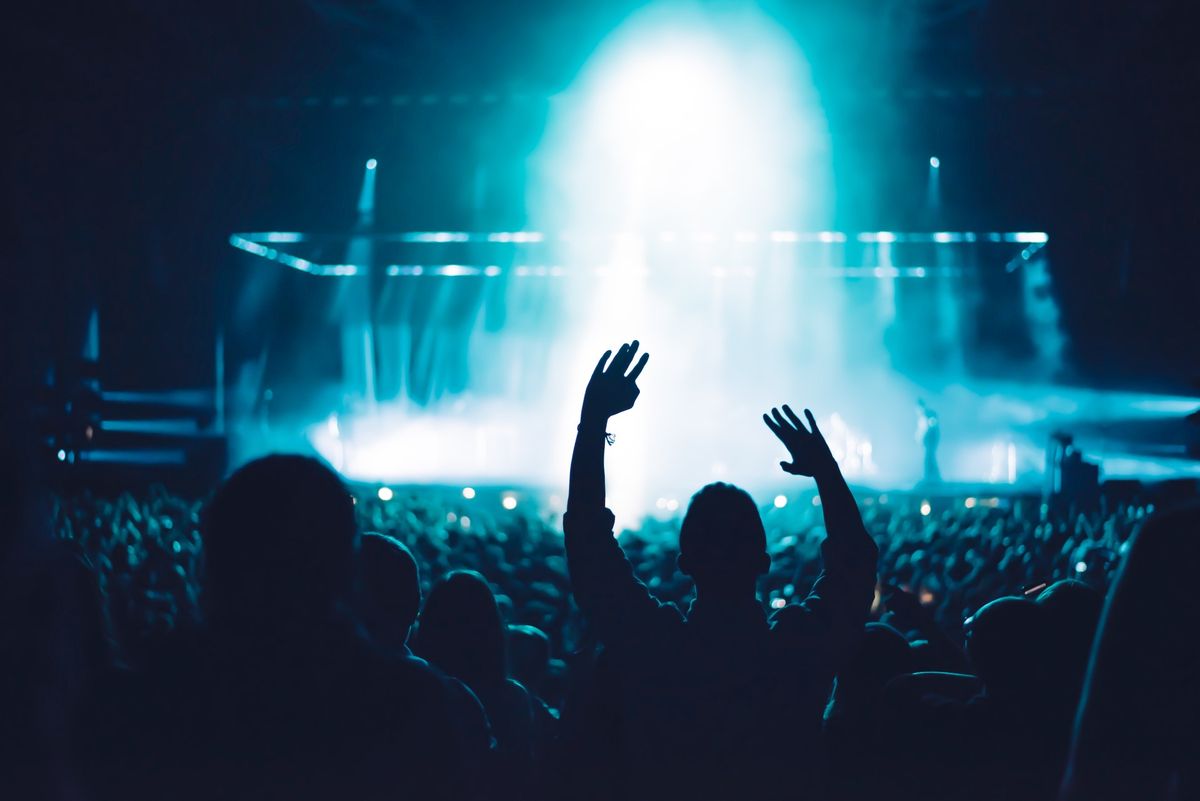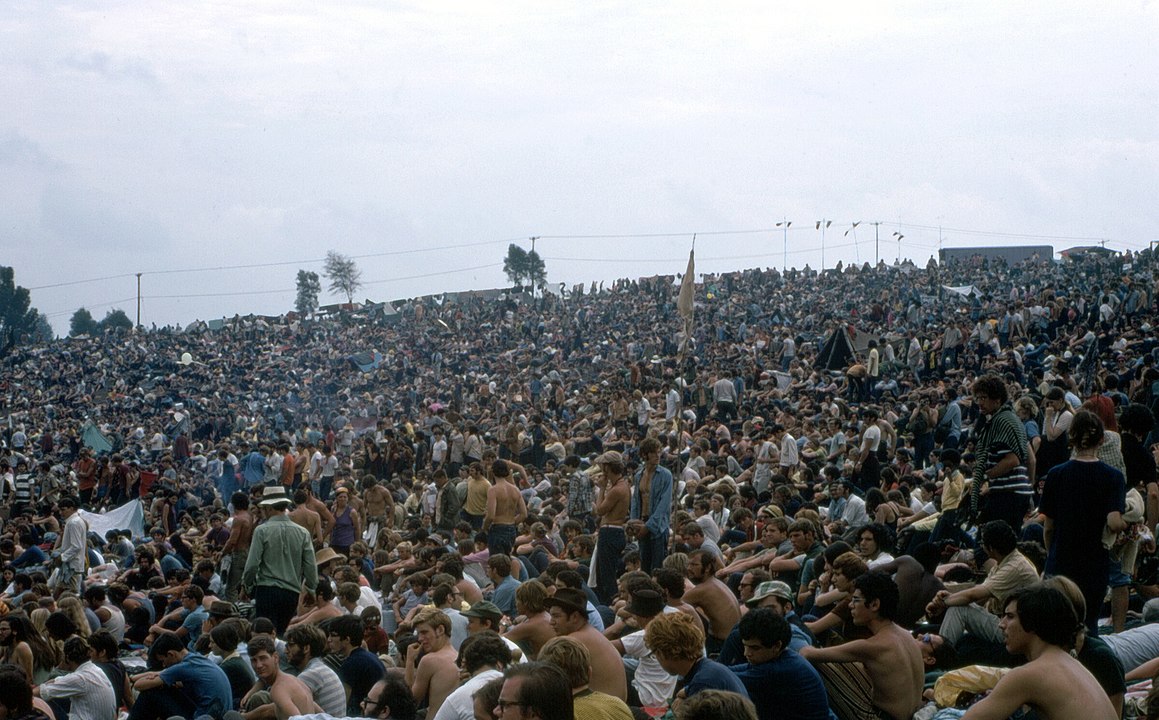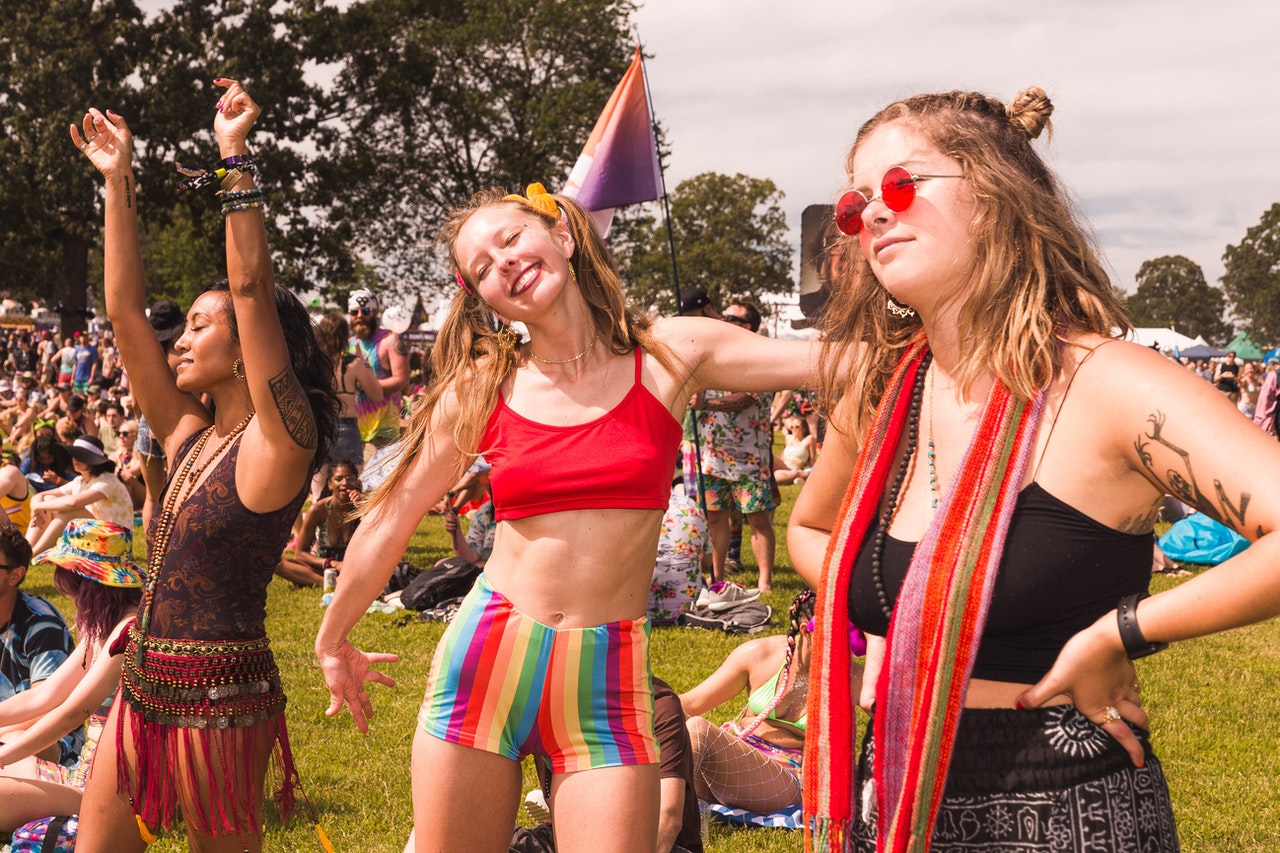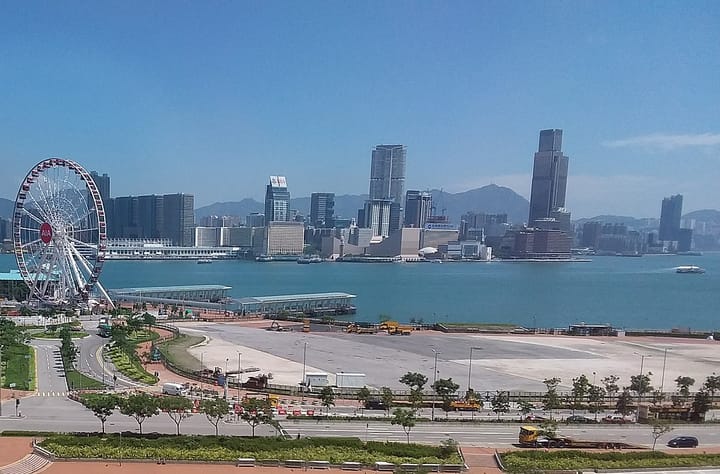Why are music festivals so popular among millennials?

A few minutes every morning is all you need.
Stay up to date on the world's Headlines and Human Stories. It's fun, it's factual, it's fluff-free.
In this day and age, live music is becoming more and more common – so why are music festivals so popular with millennials? People all over the world are chasing after the total experience live music has to offer, as opposed to just listening to a new track through their AirPods. Although individual concerts still play a huge role in the music industry, music festival industry growth is earning widespread notice across the globe. From the culture to the fashion to the camaraderie, big music festivals are the events to see – and be seen.
Why pay to see one artist when you can pay the same price to see curated performances of all the best artists at the same event? This “total package” arrangement is just one of the reasons why millennials love music festivals. The big question comes down to just what music festivals are, and how the industry continues to nurture its growth.
Some history on music festivals

Established in the late 1960s, Woodstock Music Festival was one of the first three-day music festivals that made its name in modern pop culture history. As half a million people waited for what was known to be the “Aquarian Experience: 3 days of Peace and Music,” the event ultimately became synonymous with the counterculture movements that were occurring at the time. Believing in the ideology of “make love, not war,” peace-goers across the United States camped out in Bethel, New York to await the celebration to begin.
Popular artists like Creedence Clearwater Revival, Jimi Hendrix, Grateful Dead, Janis Joplin, Joan Baez, Jefferson Airplane and many others were chosen to be a part of one of the most memorable musical experiences in history. Due to the popularity of the event and the unexpected amount of attendees, organizers soon realized that the festival would have no efficient way to charge or organize the hundreds of thousands of people without tickets still scrambling to get in.
Eventually, Michael Lang and his partners, who were the curators of this event, decided to make Woodstock free to the public. Meaning, anyone and everyone of all ages and colors were able to step into what was known to be the biggest pivotal moment in popular music history.
Big music festivals on the West Coast
Fast forward fifty years and society is now beginning to see how innovation and technological advancements have transformed the way people experience live events.
Coachella
The Coachella Valley Music and Arts Festival began in the late 90s and has been one of the most globally known music festivals to this day – especially when it comes to the clout from just having attended. People from around the world make their way to the skin-sizzling desserts of Indio, California not only for the two to three days of rock, pop, electronic and hip-hop but also to dress up (and be seen) in their most creative outfits. Almost everyone is dressed up in the newest and latest fashion of the year – so if you make plans to attend, come prepared. You might end up doing a photo shoot next to the world’s largest transportable Ferris wheel.
Electric Daisy Carnival (EDC)
Electric Daisy Carnival was solely meant for those in love with electronic dance music (EDM). Starting in the heart of Los Angeles, the festival eventually moved the venue to Las Vegas, Nevada (due to high occupancy) but is still considered one the biggest “raves” to attend and is still upholding their worldwide renown. Because of technology and innovation, the whole festival is a brightly lit visual masterpiece. At night the whole venue glows in the dark – showcasing an infinity of fluorescent lights and an endless row of LED everything. Here, you don’t even need to listen to the music, you can spend the whole day letting your eyes do all the work.
Burning Man
Burning Man has been afloat since the mid 80s and although people consider it a lifestyle as opposed to a music festival, it has still become one of the most renowned events in the history of musical gatherings. In the middle of Black Rock Desert, the event functions as one of the biggest social gatherings and culminations the west coast has ever experienced. The art here speaks to your eyes; interactive sculptures the size of buildings, transportable art cars floating through the desert made of scraps and LED lights, and various vendors providing whatever they can for the community. A week long of bartering, music, self-expression, creativity, love and fire – lots of fire. If you’re ever wanting to leave reality for a week, this is the place to do so.
Why are music festivals so popular with millennials?

So why are millennials so drawn to these musical gatherings? Why is it that people all over the world are paying (x) amounts of money and camping out for three to five days of music? Considering all the factors of the modern world, millennials are after the experience.
As loud as your subs may get in the car, the satisfaction of listening to your favorite band, for most, comes nowhere near the level of pleasure that comes with a live stage production. As enjoyable as it is to shout the lyrics of your favorite song with a friend, the experience of screaming the lyrics at the top of your lungs with hundreds, maybe thousands, always seems to be more memorable.
Attending music festivals is about a lot more than just the music. It’s the atmosphere, the culture, the people; it’s about being immersed among thousands of like-minded fans and experiencing something you can’t just download or stream. You can’t buy culture, let alone experience the human connection through the World Wide Web. You need to live it, drown yourself in the cultural settings the world has to offer. The visceral experience is going extinct with modernity, and as music festivals continue to grow, so does the need for a memorable, tangible moment. Just as one of Hendrix’s most famous quotes asks you – “Are you experienced?”
Have a tip or story? Get in touch with our reporters at tips@themilsource.com




Comments ()